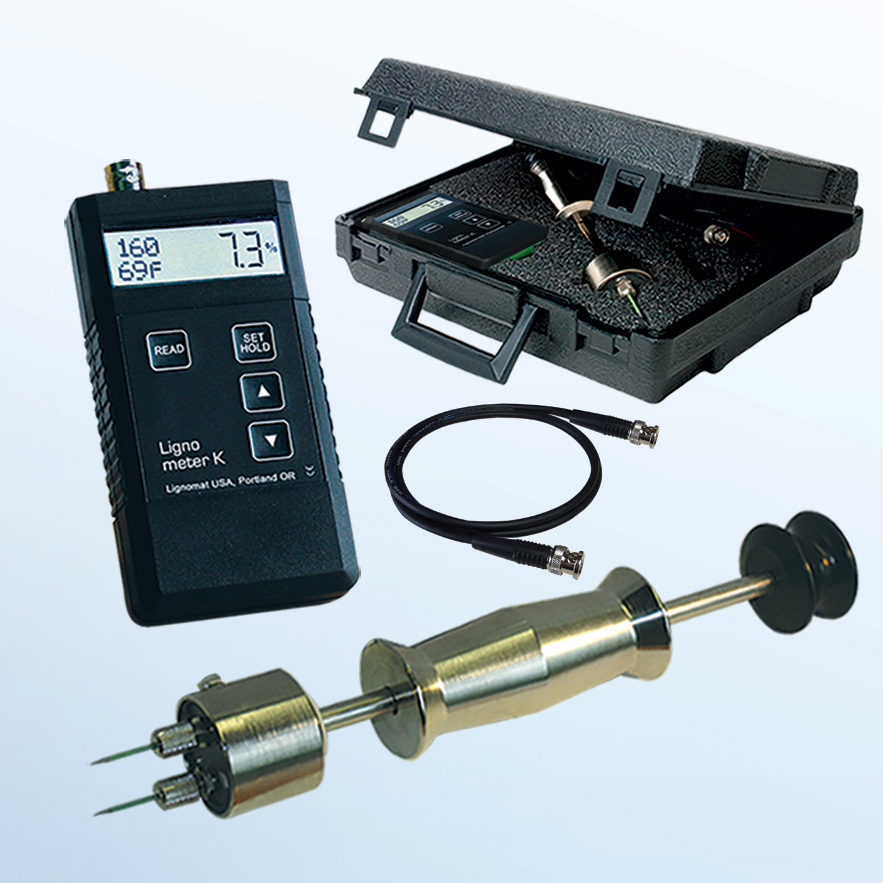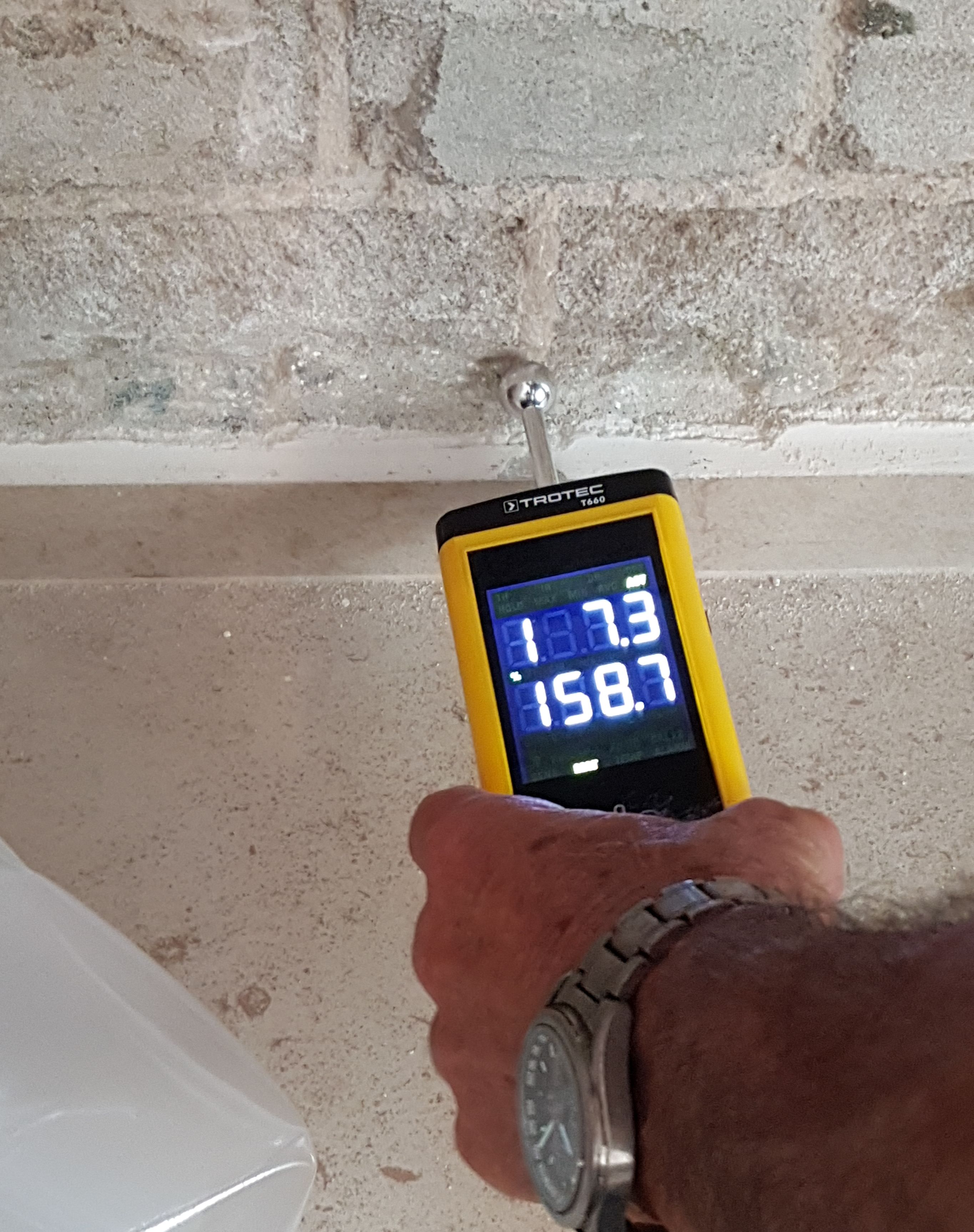The Ultimate Overview to Dampness Meters: A Comprehensive Introduction and Just How They Can Save You Cash
Moisture meters offer as crucial devices in spotting and monitoring moisture content in materials, helping in avoiding pricey damages and guaranteeing the top quality of products. Recognizing the nuances of various kinds of moisture meters, their applications, and the potential cost-saving benefits they offer can be a game-changer for organizations and professionals alike.
Kinds Of Wetness Meters
One usual type is the pin-type wetness meter, which gauges the electrical resistance between 2 pins put into a product. Pinless dampness meters, on the various other hand, use electromagnetic sensing unit plates to check a bigger area without creating damages to the product's surface.

Furthermore, there are likewise specialized wetness meters made for details materials like hay, grain, or soil. These meters provide exact moisture readings tailored to the distinct residential or commercial properties of the material being evaluated. Infrared dampness meters gauge the thermal properties of a product to determine its moisture content non-invasively, making them useful for applications where pin or pinless meters may not be suitable. Comprehending the different sorts of moisture meters offered can aid industries choose one of the most suitable device for their details dampness measurement demands.

Advantages of Utilizing Wetness Meters
Dampness meters supply important advantages in accurately analyzing and checking dampness levels in diverse products and environments (Moisture Meter). Among the main advantages of using moisture meters is the prevention of potential damages caused by excess dampness. By identifying and addressing high wetness levels early, wetness meters aid to avoid mold development, rot, and structural damage in buildings, conserving both money and time on fixings. In addition, dampness meters aid in ensuring the quality of materials during building or manufacturing processes. By properly measuring wetness material, these devices assist keep the stability of wood, drywall, concrete, and other materials, reducing the danger of defects or failures.
Additionally, utilizing moisture meters can lead to raised energy performance. In agricultural settings, wetness meters play a crucial role in optimizing crop returns by allowing farmers to monitor dirt wetness levels and make informed watering decisions.
Exactly How to Select the Right Wetness Meter
When picking a dampness meter, it's essential to guarantee that the meter is ideal for the certain product you will certainly be screening. Different materials have differing electric properties that can impact dampness readings, so picking a meter developed for your product is critical for exact results. By carefully examining these aspects, you can choose a dampness meter that satisfies your needs and provides exact moisture measurements for your jobs.
Appropriate Strategies for Dampness Meter Usage

Cost Cost Savings Through Dampness Meter Applications
Exactly how can the critical use of wetness meters read what he said lead to significant cost financial savings across numerous markets? In the agriculture market, moisture meters help in establishing the optimum time for gathering crops, avoiding over-drying or excess dampness that can affect the final item's quality.
Similarly, in construction, wetness meters help prevent costly problems by discovering wetness degrees in building materials, such as wood or concrete, which can bring about structural issues otherwise attended to without delay. By recognizing trouble areas early on, service providers can take rehabilitative actions to prevent substantial repair work or replacements, eventually saving time and money.
In addition, in the food handling market, dampness meters are crucial for keeping track of product high quality and ensuring conformity with safety guidelines. By properly determining wetness web content in food products, suppliers can protect against spoilage, keep freshness, and lower waste, causing considerable expense savings. Overall, the critical application of wetness meters is a beneficial financial investment that can result in substantial cost reductions and enhanced efficiency across numerous industries.
Final Thought
To conclude, wetness meters are useful devices for determining and finding wetness degrees in various materials. By using the right dampness meter and adhering to proper strategies, customers can properly stop pricey problems triggered by excess dampness. Spending in a quality moisture meter can bring about considerable price financial savings in the our website future by recognizing prospective concerns early on and making it possible for punctual removal. Eventually, dampness meters are crucial tools for maintaining the honesty and long life of materials and frameworks.
Wetness meters serve as vital tools in detecting and checking moisture material in materials, helping in avoiding costly damages and ensuring the top quality of items. Infrared wetness meters measure the thermal homes of a material to determine its wetness web content non-invasively, making them beneficial for applications where pin or pinless meters may not be appropriate.Wetness meters supply invaluable benefits in accurately monitoring and evaluating moisture levels in varied products and environments. In farming setups, wetness meters play a critical function in enhancing crop returns by making it possible for farmers to check soil wetness levels and make informed irrigation decisions.In final thought, moisture meters are valuable devices for detecting and measuring moisture degrees in various materials.